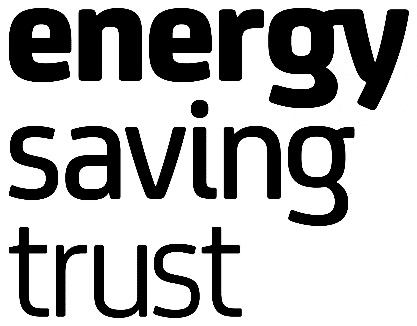An Introduction to Embodied Carbon in Construction
Why Learn with Circular Ecology?

Interactive Learning
Engage with quizzes, assessments, real world case studies, and interactive exercises

Help Fund Free Sustainability Data
Each course sale helps fund the development of free carbon and sustainability resources through SCRI

Quality & Expertise
Developed by leading carbon and sustainability specialists, ensuring current, industry relevant training

Learn at Your Own Pace
With 12 months of access, pause, rewind, and rewatch at your convenience – anytime, anywhere

Earn a Digital Certificate
Receive a training certificate upon completion to share on LinkedIn to showcase your expertise

No Travel Required
Study remotely with on demand eLearning courses, reducing both costs and your carbon footprint
About eLearning Course: An Introduction to Embodied Carbon in Construction
Duration
2 days
Modules/Topics
4 Modules
22 Video Topics
4 Worked Example/Case Study Topics
10 Quizzes
1 Final Test
Time to Complete
12 months access
Learning Format
Online, self-paced
Level
Foundation+ (Beginner-Intermediate, Introductory)
Certificate
Digital proof of completion
This online introductory course offers a practical guide to understanding and assessing embodied carbon in construction. Designed for construction professionals, consultants, and sustainability advocates, the course walks you through a complete embodied carbon assessment, from concept to reporting.
Learn at your own pace through short video topics and worked examples, with the option to complete a final test and earn a certificate.
The modules cover a wide range of relevant topics such as:
- An introduction to the history and context (background) of embodied carbon, and its significance in buildings and infrastructure
- An essential overview of the importance of embodied carbon and key concepts
- A walkthrough of defining boundaries of an assessment, setting a fair functional unit, and understanding what to include
- An overview of the embodied carbon of different construction materials
- Understanding target audiences and peer verification
- An overview of standards, including EN 15978 and EN 15804
- Targets and guidelines for embodied carbon assessments, covering government policies and industry specific standards (including EN 15804, EN 15978, and PAS standards), best practices, BREEAM credits, and Scope 1, 2, and 3 emissions
- Methodology: Accounting for biogenic carbon, addressing the end of life of materials (including substitution, 50:50, and recycled content methods)
- How to find and interpret data and tools. An introduction to using free and paid databases, including the Inventory of Carbon and Energy (ICE) Database, DEFRA/DESNZ emissions factors, and EPDs. A brief overview of embodied carbon calculation tools
- Worked examples and case studies of calculating embodied carbon
- Use worked examples to interpret results, make fair comparisons and recognise hotspot areas for improvement
- An overview of common mistakes and Frequently Asked Questions (FAQs)
- Explore embodied carbon reductions, the benefits and uncertainties of embodied carbon assessments
Learning Objectives
By the end of this course, participants will be able to:
- Understand the foundations and importance of embodied carbon in construction
- Perform a basic embodied carbon assessment for construction projects
- Navigate relevant standards, databases, and software tools
- Interpret results and identify carbon hotspots for reduction
- Build confidence to progress to more intermediate training
Who is this Course For?
This course is suitable for:
- Built environment professionals (architects, engineers, contractors)
- Consultants and sustainability professionals
- Local authorities and infrastructure bodies
- Academics and students with a focus on construction sustainability
What Level is this Course?
Foundation+ (Beginner-Intermediate, Introductory)
No prior knowledge of embodied carbon is required, although two topics in particular (‘Method for Recycling’ & ‘Biogenic Carbon’) are explored in more technical, intermediate level detail. Suitable for individuals and teams looking to introduce or improve their understanding of embodied carbon in construction.
Embodied Carbon in Construction eLearning Question: GHGs Comprising CO2 Equivalents
What main greenhouse gases (GHG) make up CO2 equivalents?
Have you ever wondered what goes into the number we call “carbon emissions”? It’s not just CO2. When we talk about a carbon footprint, we’re actually referring to CO2 equivalents (CO2e). This is a common unit used to measure the combined global warming potential (GWP) of multiple greenhouse gases.

The Learning Process
Sign up for an eLearning course
Pick from a selection of sustainability courses
Learn at Your Own Pace
Utilising the array of real world examples, calculations, and videos, learn in your own time
Final Tests
Each course has an end of course test designed to test your knowledge and understanding of the modules
Earn a Certificate
Upon passing the final test, you will be eligible for a digital proof of training certificate
Plant a Tree
Share your certificate on LinkedIn and tag us, and we will fund the planting of a tree on your behalf
What Learners Have to Say About Our eLearning Courses:
Our courses have helped learners from 80+ organisations and academic institutions:
Pricing, Contact, and FAQs
This course is part of the Circular Ecology eLearning Hub. View our pricing structure and FAQ page for more information.
If you would like more information about our eLearning courses, please contact us at training@circularecology.com.
To ensure you keep up with all the latest eLearning course developments and insights, sign up for our mailing list or follow us on LinkedIn.
Buy Now














